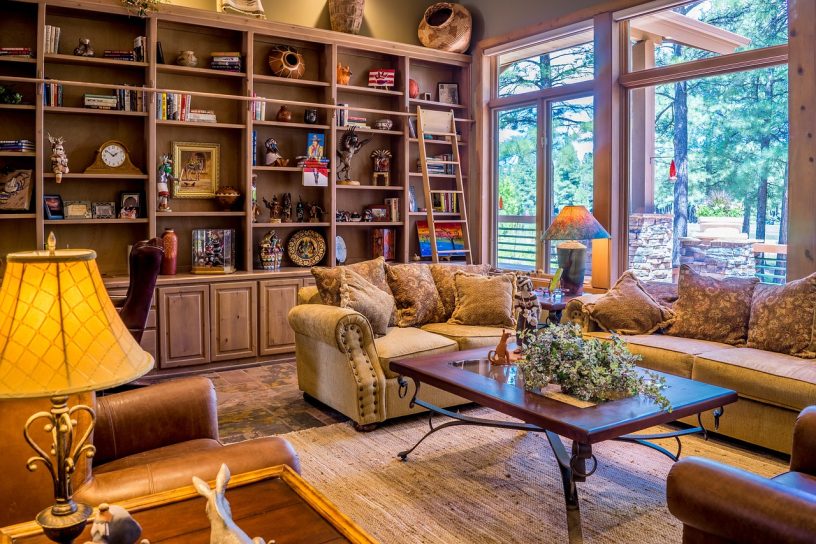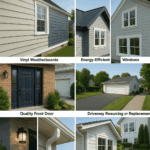The Rise of Country Living
In recent years, an increasing number of people have found themselves drawn to the tranquility and simplicity of rural living. This shift is primarily a reaction to the frenetic pace and constant noise of urban environments, which often leave residents feeling stressed and overwhelmed. A report by the United States Department of Agriculture highlighted significant migration trends, noting a steady increase in people moving from cities to rural areas in search of a more balanced lifestyle.

One cannot overlook the allure of communities such as those showcased in listings like Littleton Homes for Sale, which offer the promise of a serene backdrop coupled with the charm of country living. As urban landscapes continue to expand and become denser, the pull of sprawling fields, lush forests, and the promise of a quieter life in places like Littleton becomes ever more compelling, offering a refreshing alternative to city dwellers yearning for a change.
Littleton offers a charming blend of suburban tranquility and vibrant community living, making it an ideal place for families and professionals alike. The housing market features a diverse range of options, from cozy single-family homes to modern townhouses catering to various budgets and lifestyles. With its scenic parks, excellent schools, and convenient access to Denver, Littleton is a desirable location for homebuyers seeking both comfort and connectivity.
Benefits of a Rural Home
The benefits of choosing a rural home are numerous and varied, often centered around the concept of space—both physical and mental. Unlike urban areas, where homes are packed tightly together, rural properties typically offer more land, greater privacy, and opportunities to freely enjoy the natural environment. This openness can profoundly affect one’s quality of life, promoting relaxation and personal freedom.
Financially, rural living can be advantageous as well. According to recent housing market analyses, the cost of living, including home prices, utilities, and property taxes, tends to be lower in rural areas compared to their urban counterparts. This can lead to substantial savings that allow for a more comfortable and economically sustainable lifestyle. The appeal of rural areas grows even stronger in the face of bustling city economics, providing an attractive alternative for those seeking budget-friendly yet fulfilling lives.
Embracing Nature and Relaxation
The connection to nature that rural life affords is one of its most precious benefits, promoting physical health and mental well-being. Scientific studies have shown that spending time in natural settings reduces anxiety, boosts mood, and enhances overall psychological health. Many outdoor hobbies, like hiking, cycling, and gardening, are new experiences for people from metropolitan areas and have many health advantages.
Engaging with the natural world on a daily basis allows rural residents to develop a deeper appreciation for the environment and the peaceful rhythm of life away from the city. This immersion into nature-centric living provides residents with ample opportunities to slow down, recharge, and prioritize self-care in ways urban living rarely permits.
Sustainable Living and Self-Sufficiency
Rural living inherently encourages a greater connection to the environment, fostering practices that benefit both the individual and nature. Many rural dwellers actively partake in sustainable living practices such as maintaining gardens for fresh produce, utilizing rainwater collection systems, and employing solar energy solutions. These practices not only reduce one’s carbon footprint but also promote a greater degree of independence and self-reliance.
This lifestyle aligns with a growing movement towards sustainable living and environmental responsibility, offering residents the opportunity to live harmoniously with their surroundings. The potential for eco-friendly practices is broader in rural areas, making this a compelling choice for those committed to sustainability.
Community and Connection in Rural Areas
Rural communities often embody a spirit of cohesion and mutual support that can be immensely fulfilling. While cities offer anonymity, rural areas foster close-knit relationships facilitated by frequent community interactions and shared interests. Events such as local fairs, farmers markets, and community gatherings serve as essential social hubs that promote a sense of belonging and communal responsibility.
This connection provides a valuable network for social support and collaboration, reinforcing the idea that residents are part of something larger than themselves. The bonds forged in these communities are enduring and contribute significantly to rural life’s overall satisfaction and happiness.
Modern Technology in Rural Settings
Advancements in technology have been pivotal in overcoming some of the traditional barriers associated with rural living. Improved internet connectivity has opened doors for remote work and online education, breaking down geographical barriers that once isolated rural communities. As governments and private entities continue to invest in rural broadband infrastructure, the gap between urban and rural living continues to narrow.
This technological evolution ensures that rural areas are no longer disconnected from the modern world, enabling residents to enjoy the perks of both country and contemporary living seamlessly.
Finding Your Ideal Rural Home
Selecting the perfect rural property involves a thorough understanding of one’s needs and preferences, balanced with practical considerations. Prospective buyers should evaluate factors such as proximity to essential services, climate, available amenities, and community culture. Researching local agricultural potential, from gardens to small-scale farms, can also guide decisions when selecting a property.
Utilize resources like guidelines for buying rural property to make informed decisions. This ensures that the chosen home aligns well with personal aspirations and lifestyle goals as life transitions to a slower, rural pace.








